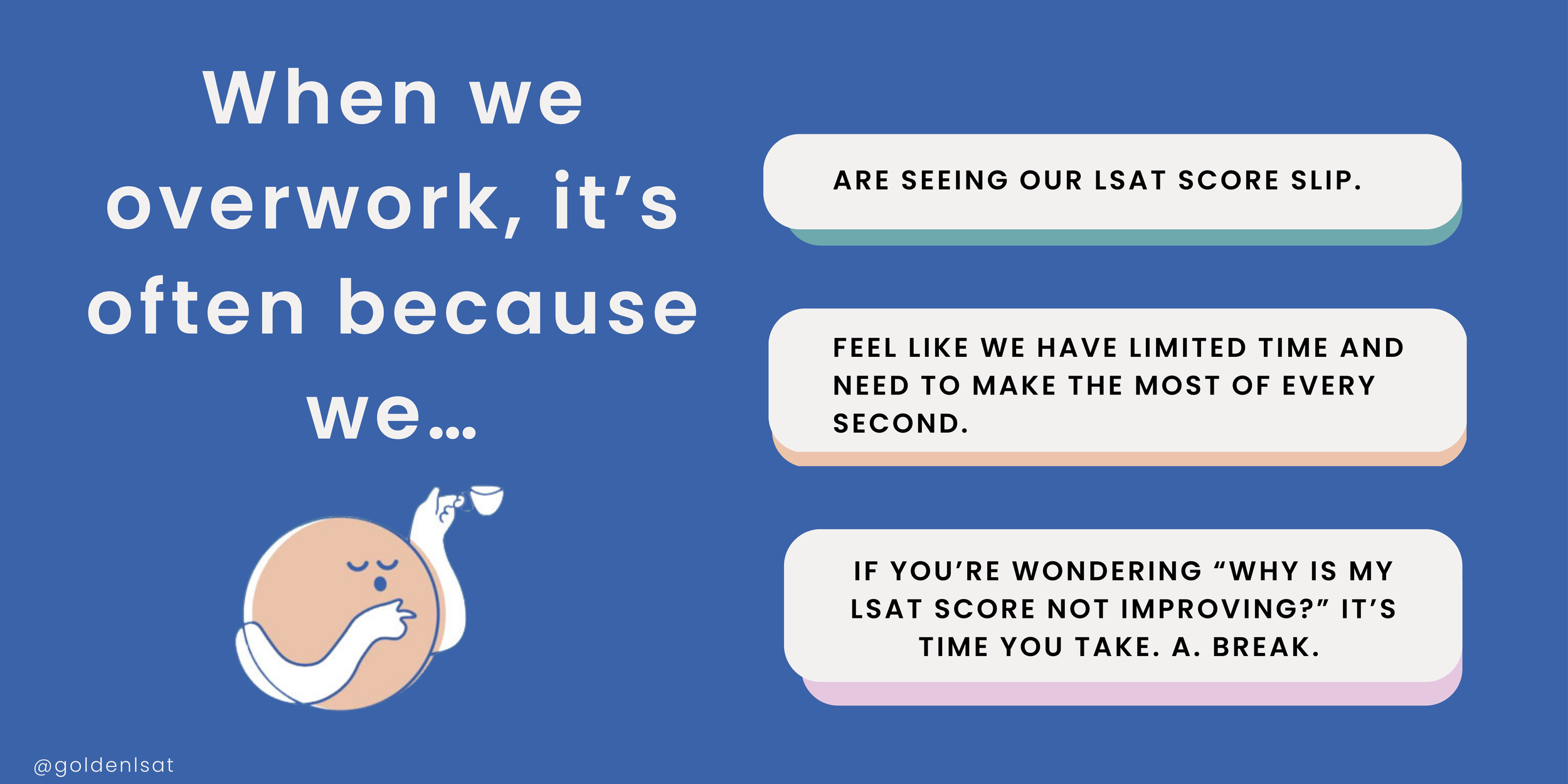Why Is My LSAT Score Not Improving?
Picture this: You’ve taken LSAT practice test after practice test. You’re at the end of your LSAT study schedule… and your score is backsliding. After countless hours of drilling, crying, drilling, crying, drilling some more, googling “why is the LSAT hard”, and crying yet again, that score still continues to drop. You find yourself screaming in the night, “I am such a failure!”
Believe me, you are not a failure. Backsliding is super common for LSAT students.
In fact, early on in my LSAT journey, I was there too. I remember all too vividly that weekend afternoon in Starbucks when I broke down over a necessary assumption drill on Khan Academy. I was drained. Spent. Kaput. Just like you, I had put in all the work. I thought that grinding and grinding would put my score on an upwards slope. I put in all the work, so my score should reflect that… right?
Unfortunately, this isn’t always the case. The hard truth is that the LSAT is, well, hard. LSAT studying will drain you in ways that studying for other tests won’t.
And at some point, exhaustion will turn your brain gains into a brain drain (I know it’s cheesy, but I couldn’t resist), and you won’t just spend the night screaming at the LSAT gods, “WHY, LSAT GODS, OH WHY IS MY LSAT SCORE NOT IMPROVING?!”, you’ll go somewhere even darker. You’ll wonder why your score is… gasp… getting worse.
So what do you do when you’ve studied endlessly and hit an LSAT score plateau, or worse, a backslide?
First: Take A Break.
That’s right. If you’re wondering “why is my LSAT score not improving?” It’s time you TAKE. A. BREAK.
When we overwork, it’s often because we…
1. Are seeing our LSAT score slip.
2. Feel like we have limited time and need to make the most of every second.
3. All of the above and then some.
My first ever LSAT, I scored a 172. The week before, I had suffered that Starbucks mocha-frappe-backslide all the way to a 161. Questions that had been easy to me for months were suddenly running me ragged.
Is the LSAT hard? Yes. Is it that Impossible? No Way.
Is the LSAT hard? Yes. But it’s not so hard that we can suddenly lose all of our skills in a matter of days. When I scored that 161, my brain was scrambled. If you showed me a sentence with more than 10 words, or the phrase “only if,” I might have collapsed into a crying heap.
I was so viciously overworked that I literally had no choice but to do zero LSAT for two days.
Resting was the best decision I ever made, and a lesson I took with me when I earned a perfect 180 score.
Now, I consistently watch my clients for burnout, and inevitably all of them hit a wall where they need to take a true break to reset. Whenever they do, I prescribe a true weekend of rest. Taking two days off can be scary, but I promise that you won’t lose anything you’ve learned. The only thing that’ll happen is that you’ll give your brain a chance to recover. The brain is like any other muscle. It needs rest to build up stronger.
Okay, I’ve rested. My self-study still is leading nowhere. Why is my LSAT score still not improving?
Simply put, you might be a student who needs more. Pure, 100% self-studying doesn’t work for every student.
Don’t get me wrong. Self-studying can lead to a good score.
The LSAT is hard, but learnable. However, Princeton Review, online LSAT video courses, and all the best LSAT prep books in the world might not be your particular ticket to your dream score.
PS. I’ve yet to hear 1 good review about Princeton Review, and I’ve heard plenty of awful ones.
If you’re going to spend the money on LSAT prep, you have to find someone who can replace the (non-existent) LSAT gods, and provide more than silence when you ask, “Why is my LSAT score not improving?” A good LSAT tutor can help you raise your understanding in a way that makes sense to you. You’ll get so much more out of 1:1 instruction than you would out of Princeton or any other online video LSAT prep course.
Looking for your very own LSAT Champion or wondering where to start? Click here to sign up for a free 1:1 LSAT consultation. Whether it’s with me or another trusted source, I’d love to support you along your LSAT journey.
Want access to some free tutoring now? Don’t worry, I got you. Click here to download a free guide that answers all of my most frequently asked questions–over 40 pages of LSAT goodness!
Keep in mind: self-study resources are typically designed to help the most people possible. That means they’re designed for those who have never seen the LSAT, or those who start with average diagnostic scores (in the 130s-140s). Therefore, the “max score” of self-study resources tends to cap out at 155-160.
If you’re looking for help surpassing these scores, and moving into the top 10%, you will have to push your understanding beyond what mainstream self-study methods have to offer. Many students can push into the 170s via careful self-study. If you think you’d like a guide along the way, take a look at how I can help you.



